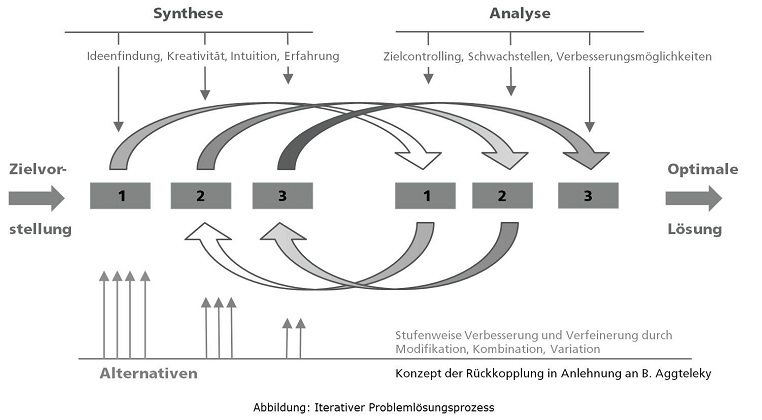Integrated planning
Integrated planning is understood as a requirement-driven control mechanism that supports the early integration of specialist/functional aspects into the planning process. Planning quality not only relates to the design aspect, but also encompasses ecological, commercial, technical, functional and social issues.
A corresponding approach to the planning and design of structures requires the existence of appropriate methodological and technical skills. As experiences during the conducted application projects at the BLM have shown, only a few planners and actors have the appropriate methodological skills to realize all-round sustainable design. This being the case, the promotion of a meaningful planning process through the development and application of methodical planning process models seems necessary.

An integrative planning approach incorporates the early development of all-round solutions as well as the coordination and planning-concurrent validation of the different technical concepts and planning solutions for testing future building performance with respect to sustainable goals and requirements. Planning is therefore an iterative process incorporating the steps of problem analysis, system synthesis and system analysis.
The development of concrete procedure models and planning-concurrent methods for the various construction-specific application scenarios and processes in the lifecycle of buildings (planning, building renovation, etc.) and urban systems thus represents an important focus of research activity.
